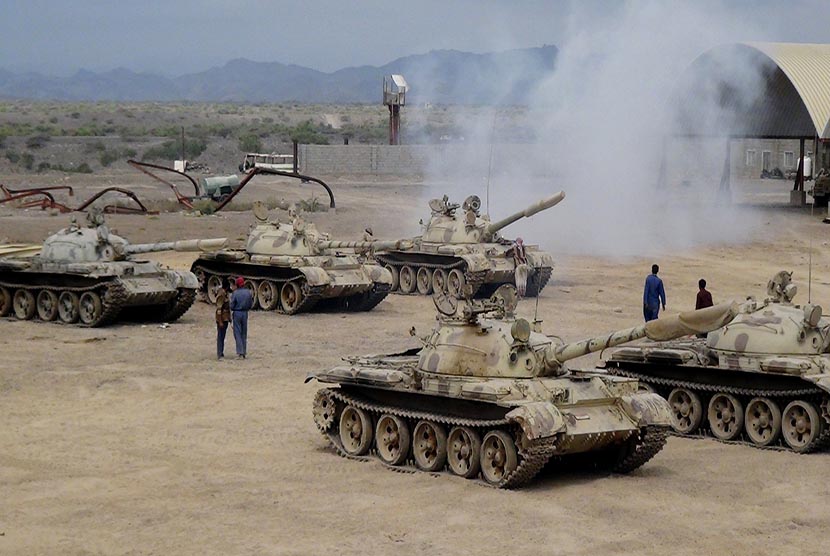REPUBLIKA.CO.ID, WASHINGTOn -- The United States is coordinating closely with Saudi Arabia and regional allies in the military action against Huthi rebels in Yemen, including providing intelligence and logistical support, the White House said Wednesday.
"President Obama has authorized the provision of logistical and intelligence support to GCC-led military operations," National Security Council spokeswoman Bernadette Meehan said in a statement, referring to the Gulf Cooperation Council.
Saudi Arabia carried out air strikes against the Huthi rebels on Wednesday, launching an operation by a regional coalition to save the government of embattled President Abedrabbo Mansour Hadi as the country teeters on the brink of civil war.
Condemning the Huthi rebels, a Shiite militia that launched a power takeover in the Yemeni capital Sanaa in February, Meehan said Washington had also been in close contact with the embattled Hadi.
US forces were not taking direct military action in Yemen, she stressed, but were "establishing a Joint Planning Cell with Saudi Arabia to coordinate US military and intelligence support."
"We strongly urge the Huthis to halt immediately their destabilizing military actions and return to negotiations as part of the political dialogue," added Meehan.
"The international community has spoken clearly through the UN Security Council and in other fora that the violent takeover of Yemen by an armed faction is unacceptable and that a legitimate political transition -- long sought by the Yemeni people -- can be accomplished only through political negotiations and a consensus agreement among all of the parties."
Two senior US Republican senators, John McCain of Arizona and Lindsey Graham of South Carolina, endorsed the attacks. But they also used the occasion to criticize what they called a lack of US leadership in the region.
"We understand why our Saudi and other Arab partners felt compelled to take action. The prospect of radical groups like Al-Qaeda, as well as Iranian-backed militants, finding safe haven on the border of Saudi Arabia was more than our Arab partners could withstand," the senators said in a joint statement.
"Their action also stems from their perception of America's disengagement from the region and absence of US leadership," they wrote.


